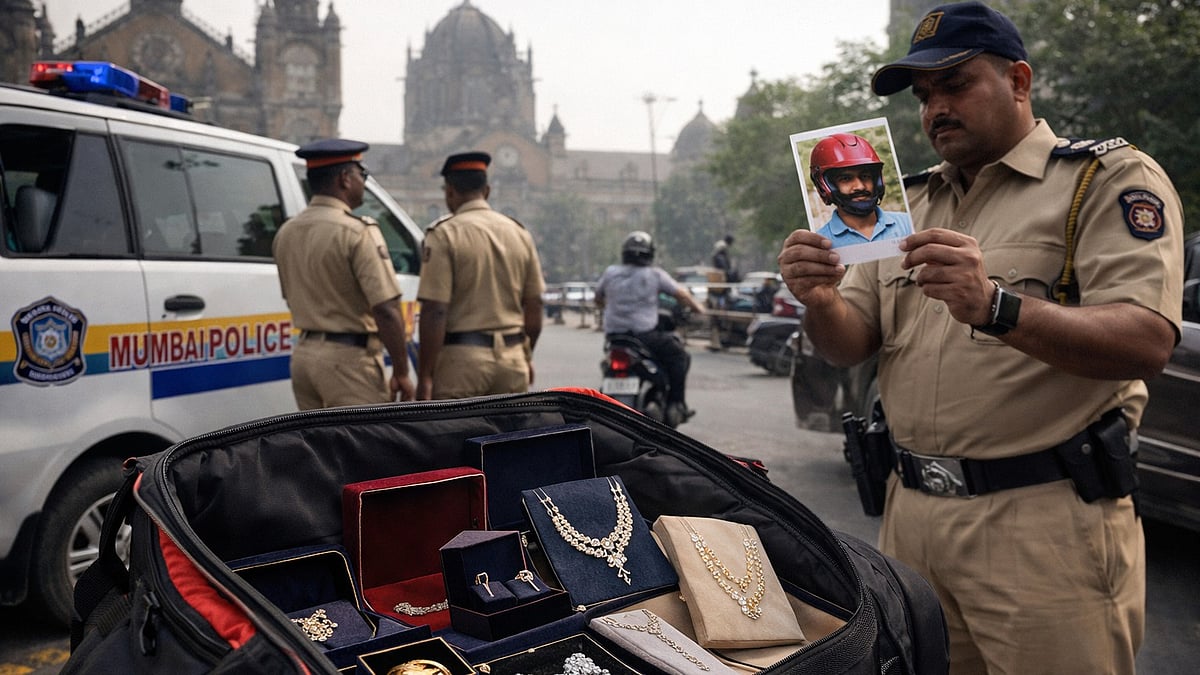RSS Sarsanghchalak Mohan Rao Bhagwat's Vijayadashami speech was reassuring, for the ideologically moderate citizens who are justly disturbed by the recent spate of mob attacks on minorities. The Union Government's silence on the issue and the FIR against the 49 intellectuals who raised it in an open letter to Prime Minister Narendra Modi, has only exacerbated their fears.
Bhagwat's call for action against perpetrators of 'social violence' is welcome, although, given the number and sheer brutality of the mob attacks and the general perception that the self-styled Hindutva storm-troopers have the tacit support of the state, his stance could have been tougher.
Video clips of lynch mobs assaulting members of the minority community are not just widely circulated, but celebrated on Whatsapp groups purportedly affiliated to the sangh. The perceived rise of the radical right has alarmed centrists and centre-right moderates, many of whom are currently BJP-aligned.
Bhagwat acknowledged and addressed the unease generated by the extrajudicial killings, but critics may well point out that his primary concern lay in distancing the RSS from lynch mobs, rather than an unequivocal condemnation of the lynchings themselves. He objected strongly to the description of the collective assaults as 'lynchings'. Bhagwat's contention is that the concept of lynching is itself un-Hindu, so the 'sanskari' RSS cadres could not have been involved.
It was a nuanced position, stressing that the violence was not one-sided: “There are reports of incidents happening from both sides and allegations and counter-allegations”. Many such incidents were part of fake news, he added, warning against vested interests that were seeking to divide the nation by turning its greatest strength, “diversity”, into “differences”.
The Vijayadashami speech, in the context of the RSS' continuing efforts at global outreach, committed the organisation to multiculturalism, social harmony and respect for the Constitution. It may be a reaction to the red-flagging of the 'year of mob violence' in India by the international media, which has negatively affected the image of Narendra Modi government. The Sarsanghchalak has been at pains to position the sangh as pluralistic and tolerant.
In his lecture series at Vigyan Bhawan last year, Bhagwat tried to banish fears that the concept of 'Hindu Rashtra' is synonymous with majoritarianism and an authoritarian agenda. He stressed repeatedly on the sanctity of the 'Constitution' and rule of law and India's inherent multiculturalism. In a significant ideological shift, he pointed out that contentious paragraphs in M S 'Guruji' Golwalkar's 'Bunch of Thoughts', related to stigmatisation of minority communities and communists as 'internal enemies', have been expurgated.
The book frames the Sangh's cultural nationalism in geographical, racial, religious, cultural and linguistic terms and has long been considered the core of its ideology. To the extent that historian Ramchandra Guha recently contended that 'Bunch of Thoughts' was the “RSS Bible”. But it took only a couple of meetings for the RSS to arrive at a consensus on distancing itself from Golwalkar's more extremist views. At a book release function on September 30, Bhagwat declared that the RSS was not represented by any book, nor was it bound by an ideology.
He painted the RSS as a dynamic, evolving organisation, with the flexibility to adapt to a changing socio-economic enviroment. Bhagwat adopted the same stance while meeting representatives of the international media in New Delhi last month. He emphasised the RSS's belief in 'diversity in unity' and its acceptance of homosexuality as a variation rather than an abnormality, and condemned mob violence against minorities.
Bhagwat's repeated assertions of respect for the Constitution, the judicial system and the law indicate that the RSS will not resort to extra-constitutional means to achieve its objectives. A democratically-elected government conducive to its aims is in power. It can follow the legislative route. Last year's Vijayadashami speech had in fact called for a Bill enabling the Ram Mandir. This year, he called for a consensus on, rather than an imposition of, a Uniform Civil Code.
The RSS is also keen on avoiding violence in the wake of the much-anticipated Supreme Court verdict on the Ayodhya case. According to sources, the top RSS leadership made it clear in a recent closed-door meeting that, win or lose, the judgment should on no account be met with either overt triumphalism or overt violence.
Will Bhagwat's stress on staying within 'the limits of the Constitution' and the rule of law be translated on the ground? Obviously, that depends on just how vigorously the Modi government pursues action against perpetrators of mob violence. Exemplary penalties alone will banish the ugly spectre of right-wing radicalism and assure citizens of the current dispensation's healthy respect for human rights and civil liberties.




